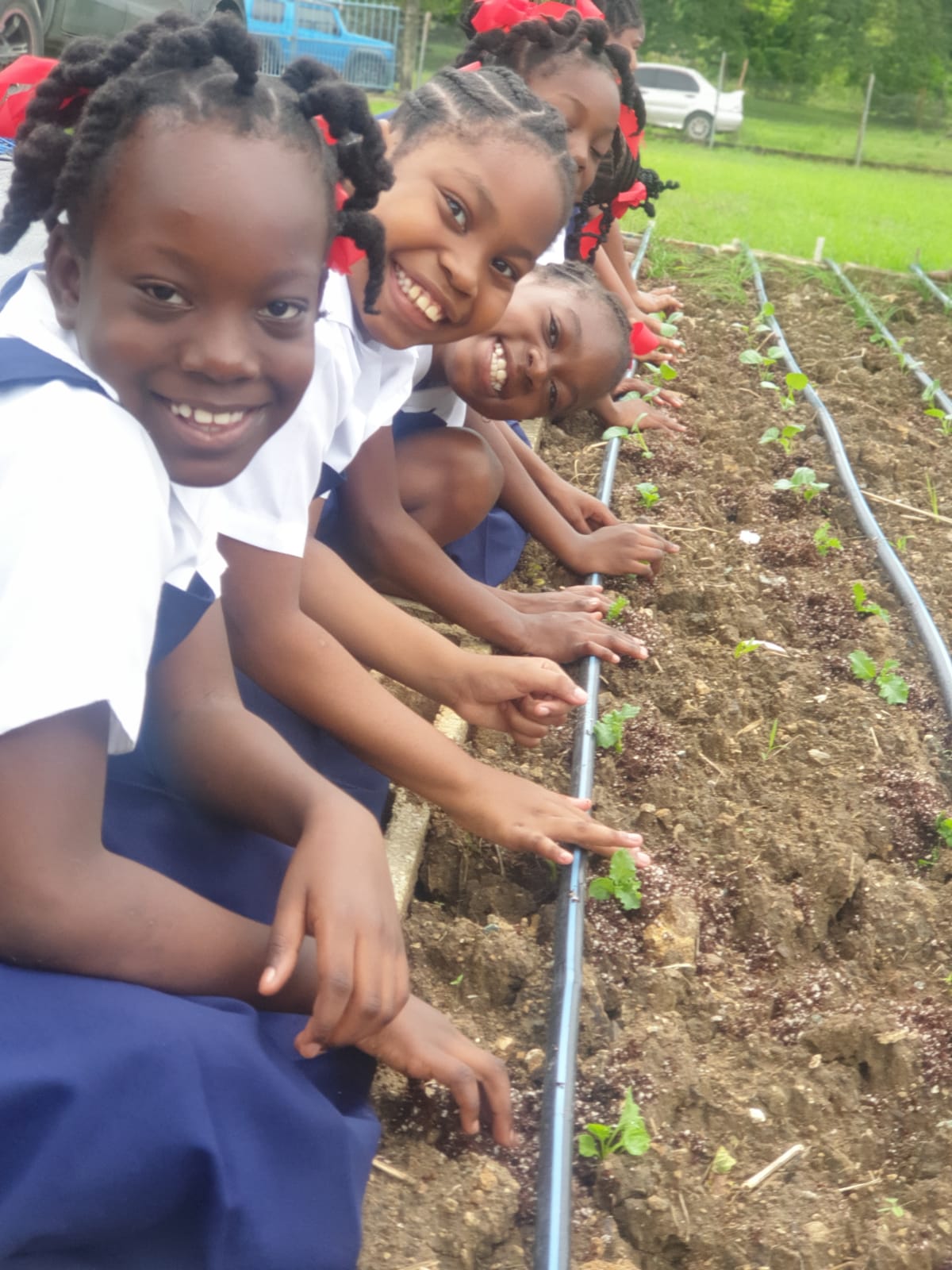About the Resilient Caribbean Initiative
The Context
Climate change has brought with it greater climatic variation, changes in precipitation patterns and an increase in the incidence and power of natural disasters around the world. The Caribbean region is especially vulnerable to these threats, due to its geographic location and status as small island developing states (SIDS). Atmospheric phenomena intensified by climate change are major threats to the development of crops and agricultural systems in general, and put the food and nutritional security of the countries at risk. Indeed, the Caribbean faced disaster losses in its agricultural sector equivalent to 9% of production between 2004 and 2014. In that same period, the world average of agricultural losses due to disasters was 4%. Recognizing the special vulnerability of Caribbean countries, the need to promote adaptation and resilience measures of their agri-food systems in the face of climate change has been underlined, with a view to guaranteeing food and nutritional security in the sub-region. Mexico and FAO have proposed to cooperate with Caribbean countries, in coordination with the Caribbean Community (CARICOM) in a project to promote the adaptation to climate change of agri-food systems (agriculture, livestock, forestry, fishing and aquaculture) and the resilience of the livelihoods of the rural population of the sub-region.

The Resilient Caribbean Initiative
The Mexico-CARICOM-FAO Initiative began its implementation in October 2018 and, until mid-2020, focused on assisting countries in actions to facilitate access to climate financing and strengthening their national and/or regional capacities. However, due to the restrictions and measures taken to contain the Coronavirus Pandemic (COVID-19) in the Caribbean, as well as the Cooperation priorities of the Government of Mexico, it was agreed in a joint Mexico-FAO consultation with the beneficiary countries and Caribbean Community (CARICOM) to reformulate the project and promote actions that contribute to reducing the impacts on household livelihoods, food availability, national and local food trade, markets, and agricultural supply chains.
Approach
Project Objectives
The Resilient Caribbean intends to work with Caribbean Community (CARICOM) countries to improve resilience to the impacts of COVID-19 in order to safeguard livelihoods, ensure adequate access to healthy food, and ensure sustainable management of natural resources. The Initiative is organized into three components and five lines of action.
Component 1 – Strengthening the institutional capacities of Caribbean Community (CARICOM) member countries in aspects related to resilient livelihoods and well-being through south-south cooperation, focusing on three main sectors:
a) Addressing the water-energy nexus in agriculture, seeking to improve the efficiency of water resources to increase agricultural productivity, using technological innovations, such as solar-powered (micro) irrigation systems to improve water efficiency and management, and access to clean, climate-smart energy to increase agricultural water productivity.
b) Resilient school feeding programs, to strengthen the capacities of the institutions and stakeholders of the participating countries to link the purchase of products from small farmers and fish farmers, while promoting a national normative-political framework for school feeding that facilitates access to healthy diets produced locally, especially benefiting the most vulnerable population and children.
c) Resilient aquaculture for food security and well-being to increase the contribution of aquaculture to food security, nutrition
and livelihoods by increasing the capacities of aqua culturists for better production, greater participation in the market , and
increased community recognition of their role in providing healthy food through economically viable, ecologically sustainable
and socially acceptable aquaculture practices.
4f6cd85f440249c79a1d5a9e99563a34.jpeg?sfvrsn=516e91ac_0)
Component 2- Facilitation of access to climate and environmental financing for resilience and adaptation to climate change, which will allow the strengthening of capacity in countries for the design and negotiation of projects to be presented to the Green Climate Fund (FVC), the Global Environment Facility (GEF) and the various financing mechanisms.
Component 3 - Effective and efficient management of the Initiative and knowledge. In order to achieve the expected results and impacts of this Initiative, especially the two components detailed above, this component will support:
i) general coordination and technical support for the implementation of project activities under Component 1 and 2;
ii) the management of South-South and Triangular Cooperation (SSTC) according to agreed procedures;
iii) coordination of the Initiative's monitoring and evaluation actions;
iv) the strengthening of national and regional cooperation networks through processes of systematization and exchange of knowledge and
v) the production and dissemination of communication products to disseminate information and lessons learned from the activities implemented in the Initiative.
Lines of Action
The lines of action of the Initiative, which are transversal to components 1 and 2, allow the organizing and planning of work to achieve concrete progress in five important aspects:
- Regulatory political framework: which includes support for regulatory processes, policies and programs that involve the incorporation of resilience and adaptation to climate change.
- Management and facilitation of good practices and innovation: which includes the facilitation and validation of good practices and innovations (technological, institutional, managerial) that promote climate-adapted sustainable agriculture, nutritional food security, resilience and adaptation to change climate.
- Strengthening of capacities: the strengthening of organizational, individual, technical and functional capacities that will ensure the sustainability of the processes promoted by the Initiative.
- Facilitation of access to climate finance: support for national processes and groups of countries to access climate finance and support the related political-regulatory framework.
- Generation of evidence for decision-making: support for the generation of studies, evaluations and diagnoses that allow decision-making based on evidence.
- Knowledge management and Communication: documentation of experiences and preparation of communication products that facilitate the sharing of knowledge and make the cooperation work carried out visible.
- Planning, coordination and follow-up of the Initiative: as well as administrative, operational and financial assistance for the proper execution of the Initiative.
